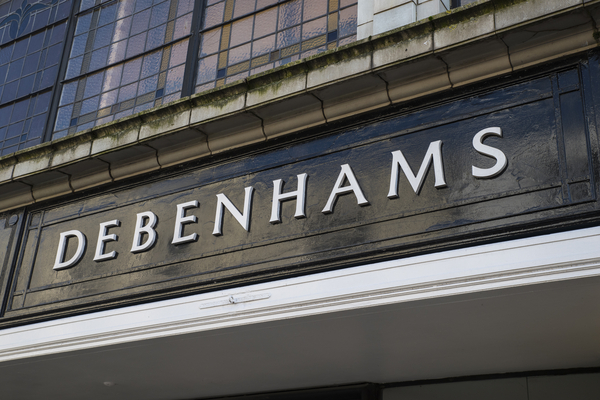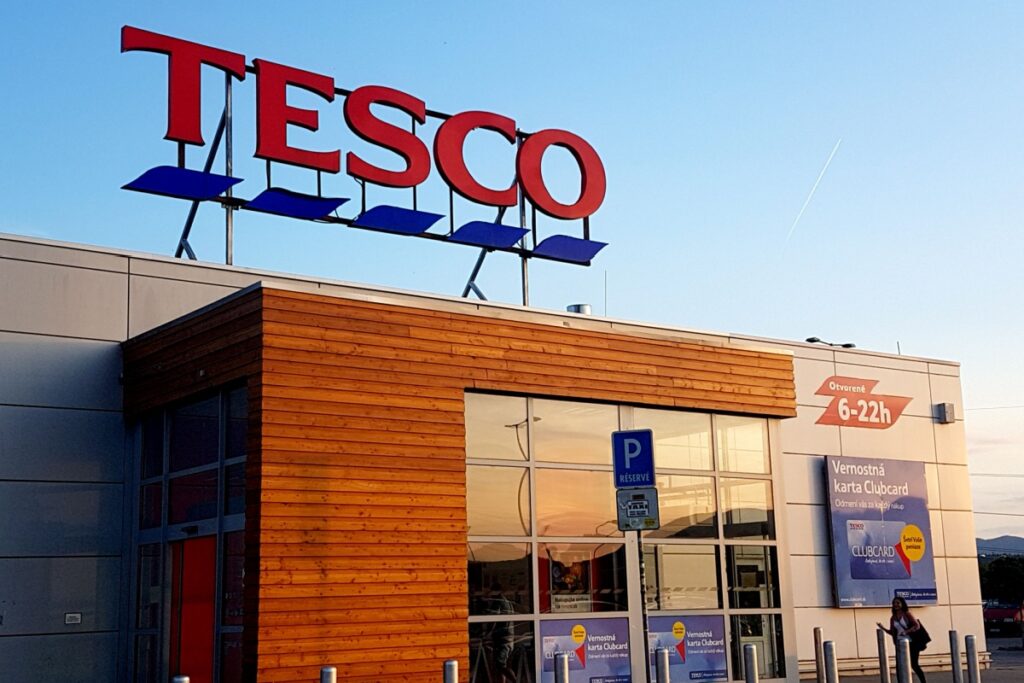The tale of Britain’s two private equity-owned supermarket buyouts took a new turn when Asda owners the Issa brothers unveiled a £2.3bn merger between the supermarket chain and the UK and Ireland operations of their other business, petrol station giant EG Group earlier this year.
The proceeds from the tie-up will be used to pay down EG Group’s climbing debt pile.
However, it will heap further financial liabilities onto Asda, which is already weighed down by the debts that were piled onto the business when the billionaire brothers bought it. In its 2021 to 2022 financial year alone, Asda paid £375m in interest on the deal.
To fund the deal with EG Group, Asda is borrowing £770m in new loans with the billionaire brothers and private equity firm TDR Capital putting up £450m.
GMB national officer Nadine Houghton argues the grocer is being used by its owners as a “cash cow” and warns that rising interest rates will leave the retailer’s debt level “unsustainable”.
Similarly, retail analyst Nick Hood of Opus Business Advisory says it’s “too much debt” for “low margin businesses in highly competitive markets” to take on.
The Issa brothers have also been looking at asset stripping options to combat its businesses’ growing debt piles for a while and were even understood to be pursuing the sale and leaseback of Asda’s £8.6bn property estate earlier this year.
The private equity-owned grocer is not alone in its quest to manage debt.

Grocery rival Morrisons, which was taken over by private equity firm CD&R in an equally debt-laden £7bn deal in 2021, spent half of its profits paying off its £375m interest bill last year.
Facing an estimated £795m interest bill over the next two years, Morrisons signed a sale and leaseback deal worth £220m for seven of its distribution warehouses for up to 25 years.
As both supermarkets look to manage soaring debt piles, can these firms truly compete and thrive or could this lead to a downward spiral for the private equity owned retailers?
Debt piling: A burden or helping hand?
Private equity has been rife in retail for a long time and has worked very well for the likes of Dr Martens, Gymshark and B&M.
The sector is appealing to private equity investors as retailers are highly cash generative.
However, private equity is a divisive subject with Specsavers’ founders Dame Mary and Doug Perkins going so far as to putting their business in a family trust earlier this year as part of a cautionary measure to avoid being sold to private equity in the future.
But why is private equity so controversial?
The funding structure works by leveraging finance which, more often than not, results in firms borrowing money against the retailer’s balance sheet – in turn generating debt – to use for investment.
Private equity firms typically like to back businesses that have a strong management team and a growth trajectory that can support an exit, usually within three to five years, either in the form of an IPO or selling to another firm.
During that time, the business will have certain returns requirements to meet, which all-too-often can lead to quick cash generative exercises such as asset stripping or large-scale redundancies.
“This sort of stuff goes on quietly behind the scenes,” explains Hood. “Wherever you find private equity, you find asset stripping to either make profit or to reduce the debt they take on when they buy these businesses in the first place.”
The benefit of private equity is the retail specialist teams within those firms, which can often include experienced leaders – such as the likes of ex-Tesco boss Terry Leahy at CD&R and former M&S chief executive Lord Stuart Rose who is chairing TDR and the Issa brothers’ investments Asda and EG Group – which are able to bring in best practices and can share extensive knowledge with the retailer to help bolster its growth.
However, it’s no secret that some retailers have struggled under private equity ownership. Collapsed high street chains Planet Organic, Paperchase, HMV and Debenhams were all once owned by private equity firms.

Many industry experts point out that the heavy debt burden placed on businesses can make it challenging.
“This can lead to major constraints on capital investment – a key issue when the accelerated shift to online necessitates investment in technology and infrastructure to compete – and makes the business much more sensitive to a downturn,” says FTI Consulting senior managing director Ralph Fernando.
He adds that the investment cycle of private equity, typically three to five years, is another challenge for retailers.
“It often sits awkwardly with major capital investments that have a longer pay-out period [and] can mean that private equity owned retail can be starved of investment at times when competition is setting new levels of customer expectation.”
This is what some argue happened in the case of Debenhams, which carried a £100m debt pile when it was snapped up by a retail consortium in 2003 before ballooning to more than £1bn at the time of its collapse in 2021.

Hood believes the department store was “strangled by debt” leaving “no wiggle room” for the retailer to be agile enough in the ever-changing market.
He explains this restricted investment resulted in its shop floor becoming frozen in time and falling to the wayside next to the likes of John Lewis and Marks & Spencer.
Other critics have warned that conflicts between private equity firms and the company’s leadership can stilt growth.
“I’ve seen one or two brands where private equity goes in with the best of intentions of growing the brand but they fall out with the founder or the creative people and that creates a disconnect which makes it more challenging to develop the business,” says Zelf Hussain, restructuring partner at PwC.
Jimmy Choo co-founder Tamara Mellon has spoken out about disagreements she had with Robert Bensoussan of Equinox Luxury Holdings, which snapped up a 51% stake in the luxury brand in 2001.
Despite the brand growing rapidly under part control of Bensoussan, Mellon believes he added a blocker to the business and on several occasions made decisions that were out of kilter with the brand’s previous direction.
Struggling to compete
There are fears that Asda and Morrisons could follow suit.
One of their biggest challenges is the eye-watering debt bills hindering their ability to compete in the grocery market, especially with the rocketing success of the discounters.
Alarm bells went off last September when Morrisons slipped from being the UK’s fourth largest supermarket down to fifth as Aldi raced ahead securing a greater market share.
It was only in March when the grocer started to regain some of its lost footing but with the German discounter still accelerating, it is unlikely to reclaim its Big 4 position.

With the cost-of-living crisis still raging on, the UK grocery market is more price sensitive than every before and both Asda and Morrisons have been slow to react.
However, it must be noted that both have ramped up their efforts of late, with Morrisons launching a round of price cuts and a new loyalty scheme last month.
The grocer duo can only compete so far in the race on lower prices because they still need to service their debts, according to Moody’s retail analyst Roberto Pozzi.
And with Hood arguing that shoppers are looking at “price, price, price” right now, that could lead to the pair’s topline being impacted.
PE-backed successes
Despite being linked to several high profile collapses, private equity has had multiple successes in the sector.
B&M is a clear winner. CD&R, the private equity firm that now owns Morrisons, bought a 60% stake in the busines for £500m in 2012.
The investment fueled further growth at the retailer, which floated in 2014 and continues to thrive. CD&R made £1.5bn out of B&M when it cashed out in 2018. The value giant is now valued at £5.3bn
Homebase is also thriving under the ownership of distress specialist Hilco, returning to profit in 2020.
The private equity firm acquired the home and DIY retailer for £1 in 2018 following a failed attempt by Australian retail conglomerate Wesfarmers to use it as a springboard into the UK market.

Similarly, Bensons for Beds returned to profit just 18 months after it was snapped up by Alteri Investors in June 2020 as part of a pre-pack deal.
The private equity firm has ploughed investment into the beds retailer, including a £25m injection to fund a new ecommerce platform, alongside store relocations and refurbishments, to help get it back to growth.
“Generally speaking, the private equity successes are with investors that know the markets they’re going into and take a longer term view than prevails generally across the market, such as three to five years,” explains Hood.
He adds that the firms that taking a “longer view work much better than trying to maximise return from an investment over a relatively short space of time”.
The key theme linking all these PE-backed successes carry the “classic characteristics of strong brand, unique or protected niche and expansion or consolidation opportunity,” explains Fernando.
Does private equity ownership still work for the sector?
Sitting on and servicing mass piles of debt seems far from ideal given climbing interest rates, which have resulted in almost £100m being added to Morrisons debt pile.
This begs the question of whether the financing structure still lends itself well to the retail sector?
Hood argues that retailers carrying huge levels of debt can often be “crushed” by it when times are tough.
The need to be agile has increased significantly over the pandemic given the change in consumer habits and spike in online sales, which forced many retailers that had not yet to adopt an omnichannel approach.
Jeanine Arnold, who leads Moody’s leveraged finance EMEA group, says the private equity business model no longer works for the sector because of the increasing need to be “flexible, nimble and to compete against competitors”.
However, while private equity ownership has been attributed to several high profile collapses, it is also currently funding several well-performing retailers.
The cost-of-living crisis has undoubetdly added a new layer of difficulty for retailers under private equity ownership, especially those operating on wafer thin margins such as the grocers.
With the punishing conditions showing little sign of easing, let’s hope Asda and Morrisons don’t get priced out of the market.
Click here to sign up to Retail Gazette‘s free daily email newsletter
















